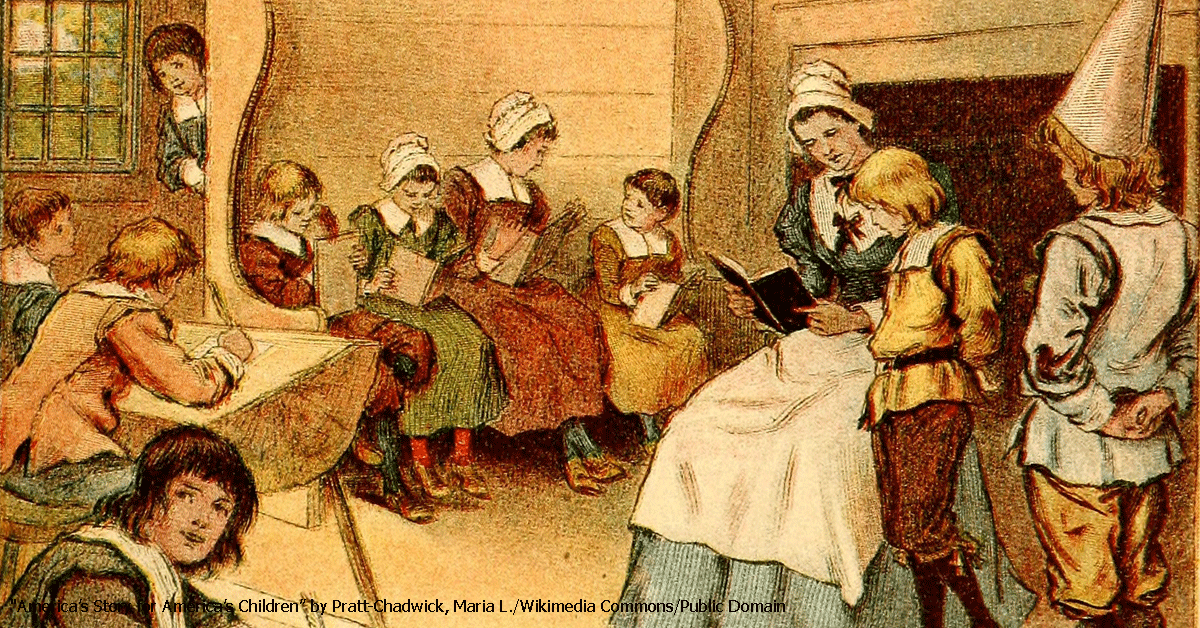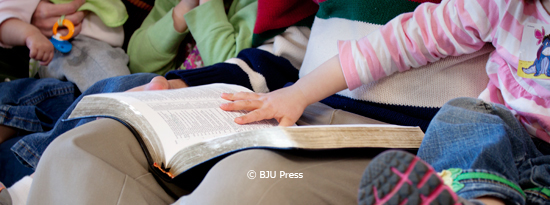
I remember my parents being criticized by many family members for taking us out of the public schools. But just like thousands of other Christian families today, my parents didn’t want their kids influenced by the agenda of modern society. Today’s exodus of Christian families from the secular public schools is reminiscent of another pilgrimage.
When the Pilgrims came to America, they left Europe so that they could be the primary influence on their own children. It was a difficult first year, but the Lord provided. As they offered up thanksgiving, other deeply committed Christians who wanted the same opportunity for their children started pilgrimages to North America. Soon other communities popped up in the Massachusetts Bay Colony with the intent of establishing “a city on a hill.” These parents wanted to be governed by God’s law and to train their children to live the same way. It was their desire that future townships could be shining examples of communities committed to serving God.
Committed to Education
These Puritan parents and leaders were committed to godly learning. They believed that reading was critical to knowing God through His Word and to following the laws of their townships. So parents took the time to teach their children how to read in spite of the difficulties of frontier life.
However, the commitment to education began to diminish within twenty-five years. Parents were beginning to be negligent in teaching their children reading and Christian doctrine. So in 1642, the Puritan leaders in the Massachusetts Bay Colony gathered to establish a law requiring that parents teach their children to read and “that all masters of families do once a week (at the least) catechize their children . . . in the grounds & principles of Religion.” [text of Massachusetts Act of 1642]
More Challenges
Five years later, the Puritan leaders gathered again and outlined a plan to provide assistance to parents for the education of their children. They believed that “one chief project of that old deluder, Satan, [was] to keep men from the knowledge of the Scriptures” by preventing children from learning to read. [text of Massachusetts 1647 “Old Deluder, Satan” Act]
So the Puritans provided a teacher for every township with fifty families to help them in teaching their children to read and write. If the township had a hundred families, they made provision for constructing a school building. Parents made a nominal contribution to pay the salaries of the teachers, but they were still responsible for their children’s education. All of this learning was motivated by a desire that children know the Lord through reading His Word.
Startling Changes
Imagine what the Puritans would think if they walked through the halls of today’s schools. How would they respond to the discovery that education has been ripped from its intended purpose—service to God? I think the Puritans would do what many Christian parents are doing today and take their children away from the evil influences. After all, they were willing to take their families into the wilderness of Massachusetts to give their children a thoroughly Christian education.
But even after that arduous journey, Puritan parents still faced challenges in providing education for their children. Yet they were willing to make the sacrifices they believed were necessary to ensure their children received that biblical education.
Providing our children with Bible-based education is vital, and BJU Press supports families like yours and mine in making this kind of commitment to Christian education by creating textbooks that present every academic subject and every aspect of life through the lens of what God has to say about it.
Are you ready to make the commitment?

